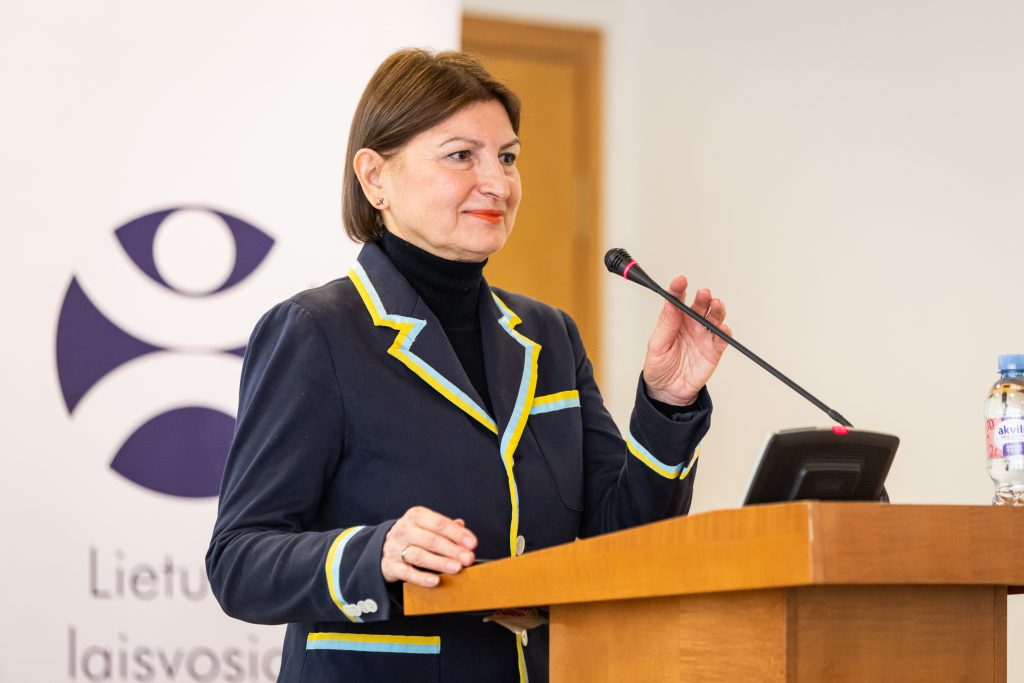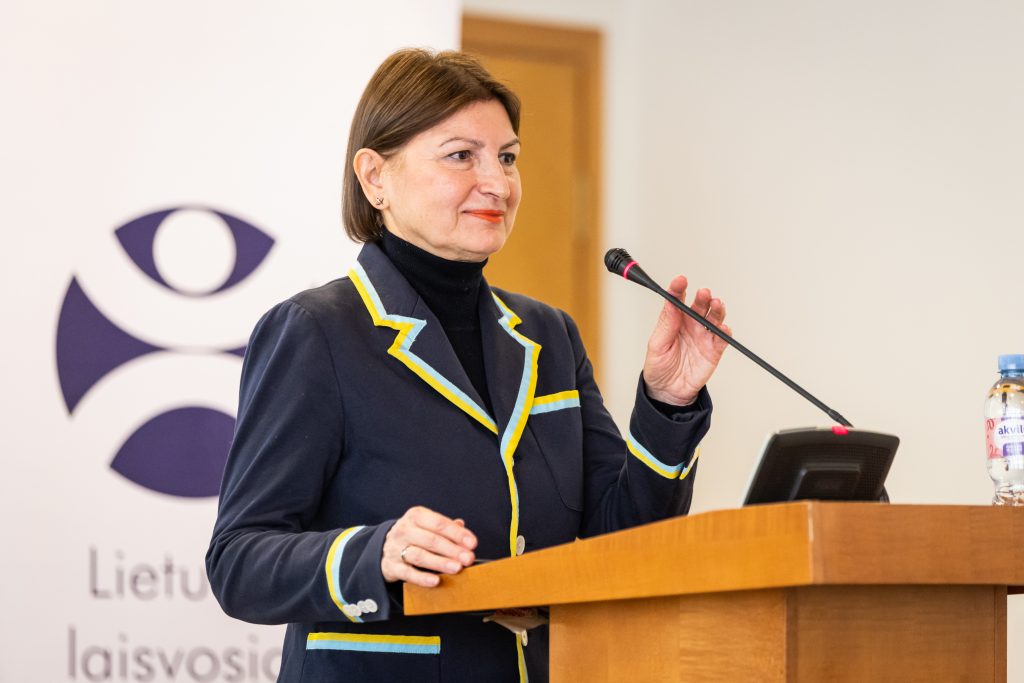On March 20, the Lithuanian Free Market Institute with its unique program of youth debates, Freedom Talks, opened Global Money Week at the Bank of Lithuania. At the inaugural event school youth teams met in a tournament to debate “Do we need money?” and “Can we buy anything with money?”
Last week was Global Money Week around the world. As I spoke at the GMW opening event at the Bank of Lithuania, I said that often times we neglect to appreciate something that is part of our everyday life – in our pockets, handbags, and wallets. Indeed, it is not uncommon to think that the world would be a better and fairer place without money and that people would be more virtuous and generous without it.
Global Money Week was a good opportunity to remind ourselves that money evolved in the course of human history to mark the scarcity of goods and resources around us. And to help us deal with this scarcity. In order to exchange these scarce resources, we need to put a value on them, to measure them in some way, to establish a common denominator, and that common denominator is money.
Money allowed humanity to rise above natural exchange, enabling every person to focus on how to best use their abilities to create goods, rather than wondering how to swap the pheasant they hunted for the farmer’s bread, or, in modern terms, how to swap the software they have developed for avocados grown or smartphones produced in far-off lands.
That is why the credibility of money is so important. After all, we would not want the ruler or the scales to be constantly replaced. Just imagine how much inconvenience we would experience in our lives if the length of a meter or the weight of a kilogram were this or that.
Paradoxically, the baseline requirement for the soundness of money is that it must remain limited, while we as human being want money to be plentiful. This causes us to constantly feel an inner confrontation with money. At times we dislike money simply because we never have enough of it. Often times we dislike those who ostensibly hinder our journey to the abundance of money.
But think about it this way: if money fell like manna from the sky for everyone, would it increase resources? No, it would not. What would happen is precisely what has happened in the world in recent years: as money multiplied, suddenly everything became grew more expensive and the value of money began to decrease. It was as if humanity had carried out an experiment that responded to the expectation – or the secret dream – of many to have more money.
So only money that remains scarce makes it possible to measure the price of iron and to exchange iron for coffee. Only scarce money makes it possible to determine all proportions in the economic reality that surrounds us. Only limited money is good money.
Therefore, sustainability – the motto of this year’s Global Money Week – starts first and foremost with the sustainability and limitation of money. Only then can every individual, as a free and autonomous maker, increase the quantity of goods and have – money.
Global Money Week is an opportunity for us to reflect on how to cultivate a relationship with money that is limited, how to sustain our personal freedom in relation to money, how to find its rightful place both in our personal lives and in the economic interactions and ties that we as humanity rely on, the ties which are invariably expressed in that same – limited –money.









This commentary was broadcast on the Lithuanian national broadcaster LRT RADIJAS.
Global Money Week is an annual global awareness-raising campaign on the importance of ensuring that young people, from an early age, are financially aware, and are gradually acquiring the knowledge, skills, attitudes and behaviours necessary to make sound financial decisions and ultimately achieve financial well-being and financial resilience. The 11th edition of GMW took place on 20-26 March 2023. Global Money Week is organized by OECD. The motto of the 2023 Global Money Week was sustainability.
Continue exploring:
Additional Tax on Apartments: from Myth to Very Bad Policy
Let Politicians Pay for Consequences of Their Economic Policies



